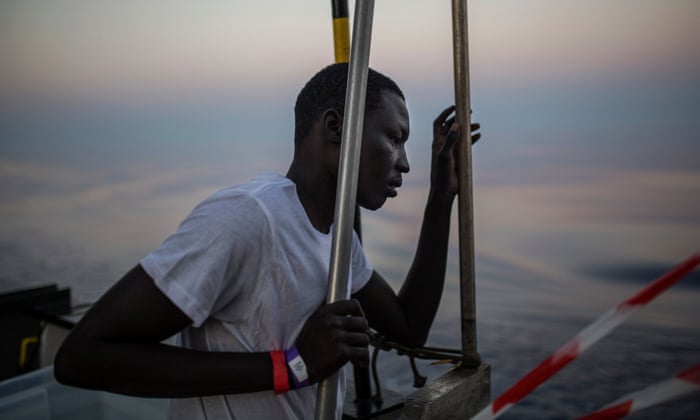PBS: Escaping Eritrea … [Read More...] about ካብ ውሽጢ ቤት ማእሰርታት ኤርትራ
Trying to block migrants won’t work. Europe needs a realistic plan
From dubious deals with third countries to processing points in Africa, Europe’s response to migration is failing. But there are better ways to tackle it together

The central Mediterranean migratory route has become the most lethal in the world, with an estimated 2,410 dead or missing in the Mediterraneanso far this year. A humanitarian crisis is fast becoming a political crisis in Italy. The stubborn refusal of national governments to make EU asylum policies work has left the Italian government on its own to handle a significant part of the migratory flows.
This has led some national government leaders to again propose deals with third countries, along the lines of the controversial EU-Turkey deal. Although wrapped up as development aid, in reality such deals represent large bribes offered in the hope that the governments of those countries will keep people from moving in search of a better life in Europe. This will do precious little to stop migration; all it will do is line the pockets of corrupt politicians, improving the opportunities for smugglers and causing more human suffering and loss of life. Frustratingly for all of us, migration will remain chaotic and uncontrolled.
Antonio Tajani, the European parliament president, has suggested such a deal with Libya. However, throwing big bags of money at a country embroiled in a civil war is not the solution to a migration issue, particularly when it ends up in the hands of armed militias. The €5bn deal between Silvio Berlusconi and Muammar Gaddafi just a few years ago, topped up with €60m by the EU, failed miserably. Haven’t we learned our lesson?
France, Italy, Spain and Germany met in Paris this week and proposed asylum-processing points in Africa, to stop people risking the journey north. But ask yourself: what would you do – wait patiently in a refugee camp, in miserable and unsafe circumstances, with zero prospects for the future and nothing to do, or try and make it across the Mediterranean? It will not be effective.
If we claim to be the most civilised continent in the world, how can we justify advocating a policy that will result in the mass detention of vulnerable people in inhumane conditions, for no reason? Even during the peak of the refugee crisis, the influx amounted to roughly 0.3% of the EU population. If Europe, the most prosperous and developed continent in the world, cannot handle that, then who can?
We should invest European money in Africa because there are very good economic and humanitarian reasons to do so. Instead of trying to buy their way out of a migration “crisis”, EU governments should start implementing the framework for asylum and migration we have already, and actually donate the funds they have pledged. In addition, we should focus all our efforts on legal avenues for labour migration, such as the EU blue card, so people who want to work in Europe will no longer have to use the asylum procedure.
Individual EU countries cannot cope with migration flows by themselves, but Europe can. Angela Merkel is right: we can manage and regulate the migration flow very well, if we do it at a European level. The European parliament is working hard to update and upgrade the asylum and migration package – including the “Dublin” allocation mechanism for asylum seekers, and the reception conditions directive.
Migration will not go away, but we can be certain that a Fortress Europe approach will not work. It is a charade, meant to reassure a concerned electorate, not solve problems. Europe is a shrinking and ageing continent. We need migration. So rather than wasting taxpayers’ billions on corrupt politicians in third countries, we should use that money for our own citizens and public services. It’s time to stop living in denial, and instead to deliver a credible approach to the migration challenges ahead of us. Europe can do it.
• Sophie in ’t Veld is a Dutch member of the European parliament, representing the social liberal party Democrats 66.
